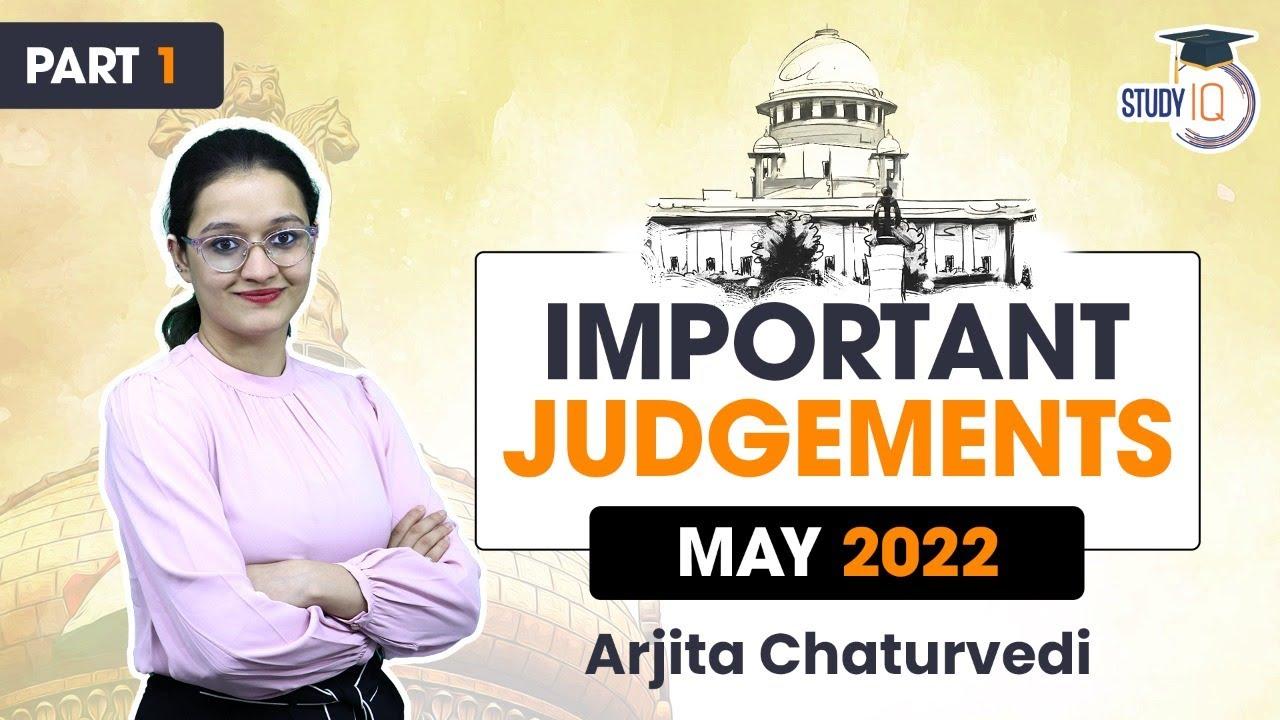Table of Contents
RIT Foundation v. UOI and other connected matters
Bench of Justice Rajiv Shakdher and Justice C Hari Shankar
- The Delhi High Court passed a split verdict on a batch of petitions challenging the exception to Section 375 of the Indian Penal Code, which exempts forceful sexual intercourse by a man with his own wife from the offence of rape.
- Justice Rajiv Shakdher has held that the exemption to the husband from the offence of marital rape is unconstitutional. Exception 2 of 375, 376B IPC was therefore struck down by him as violative of Article 14.
S.G. VOMBATKERE vs UNION OF INDIA
Bench of Chief Justice of India NV Ramana, Justice Surya Kant and Justice Hima Kohli
- The Supreme Court ordered that the 152-year old sedition law under Section 124A of the Indian Penal Code should be effectively kept in abeyance till the Union Government reconsiders the provision.
- “We hope and expect Centre and State Governments will refrain from registering any FIR, continuing investigation, or taking coercive steps under Section 124 A IPC when it is under reconsideration. It will be appropriate not to use this provision of law till further re-examination is over”
Dilip Hariramani vs Bank of Baroda
- A person cannot be convicted for the offence of dishonour of cheque under Section 138 of the Negotiable Instruments Act merely because he was a partner of the firm which had taken the loan or that he stood as a guarantor for such a loan.
- Vicarious liability under sub-section (1) to Section 141 of the NI Act can be pinned when the person is in overall control of the day- to-day business of the company or firm. Vicarious liability under sub-section (2) is attracted when the offence is committed with the consent, connivance, or is attributable to the neglect on the part of a director, manager, secretary, or other officer of the company,”
Jacob Puliyel vs Union Of India
Bench of Justices L Nageswara Rao and BR Gavai
- No individual can be forced to get vaccinated and the right to bodily integrity of a person under Article 21 of the Constitution include the right to refuse vaccinate.
- The Court held so as no substantial data has been produced on record to show that the risk of transmission of COVID-19 virus from the unvaccinated persons are higher than from vaccinated persons.
- The Government is entitled to impose restrictions on individual rights in public health interests, but the restrictions should meet the 3-fold requirement legality, legitimate need and proportionality laid down by the Supreme Court in the Puttaswamy judgment.
Download| Free PDF























 WhatsApp
WhatsApp